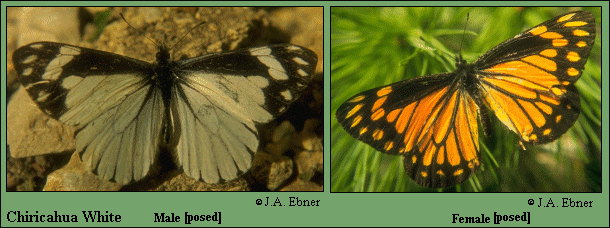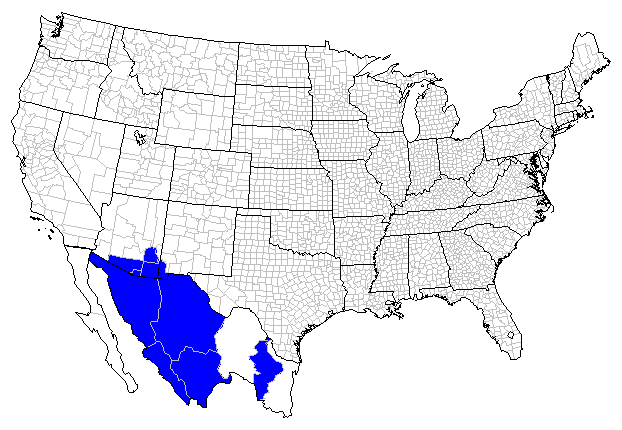 |
 

 |



Chiricahua White (Neophasia terlootii Behr)
Wing span: 1 3/4 - 2 1/4 inches (4.5 - 5.8 cm).
Identification: Male is white and female is orange. On both, the upperside of forewing has black cell and costal margin; tip of wing is black with white spots.
Flight: Two flights, June-July and September-November (most common).
Life history: Males patrol for females around host trees. Caterpillars live in a web and file out of it at night to feed. They pupate together in the web.
Caterpillar hosts: Conifers, particularly western yellow pine (Pinus ponderosa).
Adult food: Not reported.
Habitat: Pine forests.
Range: Arizona high mountains south into Mexico.
Conservation: No reports of requirements.
Management needs: None noted.
The Nature Conservancy Global Rank: G3 - Very rare or local throughout its range or found locally in a restricted range (21 to 100 occurrences). (Threatened throughout its range).
References:
de la Maza Ramirez, R. 1991. Mariposas Mexicanas. Fondo de Cultura Economica,
S. A. de C. V. Mexico, D. F. 302 pages, 67 color plates.
Scott, J. A. 1986. The butterflies of North America. Stanford University
Press, Stanford, Calif. 583 pages, 64 color plates.
Tilden, J. W. 1986. A field guide to western butterflies. Houghton-Mifflin
Co., Boston, Mass. 370 pages, 23 color plates.
Author: Jane M. Struttmann

